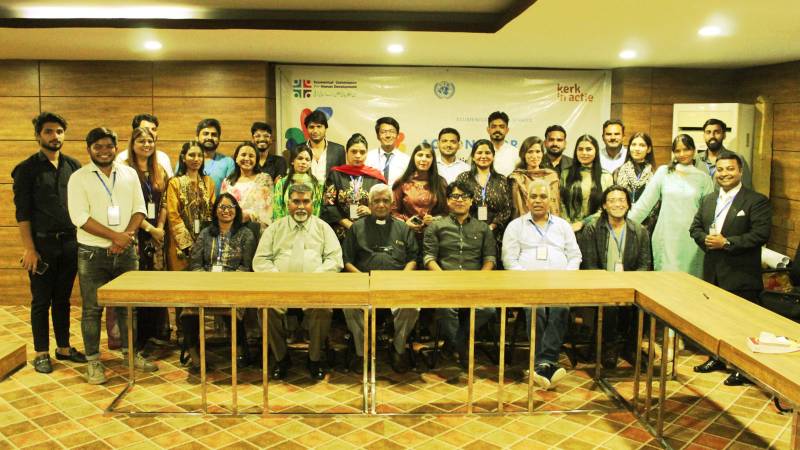
The Ecumenical Commission for Human Development (ECHD) and Pakistan Partnership Initiative (PPI) collaborated to hold a capacity-building workshop titled “Sustainable Development Goals Through The Perspective Of The Holy Bible And Christian Faith” at a local hotel in Lahore.
On the occasion, the speakers shed light on Christian social teachings as a way of life for humanity and a peaceful co-existence, quoting examples of Mother Teresa and Sister Ruth Pfau.
While addressing the participants of the workshop, social activist and trainer Asher Shahzad Gill stressed the importance of SDGs in addressing global issues and highlighted the role of youth and the impact they can make.
“Poverty is the mother of all problems. We have the best constitution in the world and a great water management system. But public policies fail in the country because we failed to evolve a mechanism for consistent policymaking and implementation,” he added.
Naureen Akhtar, senior faculty member of Forman Christian College, University, briefed about the role of youth in promoting environmental stewardship, referring to the concept of Trinity between God Almighty, the individual, and others. She blamed patriarchy for destroying human relations and the environment.
“Youth is generally ignored in the implementation of the SDGs. The church stays alone, refusing to work with fellow churches to accomplish these universal objectives. Instead of addressing these issues or collaborating with the government, the church focuses on sin, shame, and guilt,” she mentioned.
ECHD Executive Director James Rehmat said the workshop aimed to provide a platform for youth empowerment and engagement in sustainable development initiatives through a faith-based approach.
“We wanted to educate young people about the principles and values of the Bible that support the SDGs and inspire them to take appropriate and affirmative actions. It aided in equipping young people with practical skills, knowledge, and tools to contribute to SDG-related projects and initiatives in their communities,” he added.
The ECHD executive director further said, “Hopefully it will promote visible Christian unity, dialogue, and cooperation among young people of diverse religious backgrounds, emphasizing the commonalities in faith that support social and environmental sustainability and inspire them to become agents of change, advocating for sustainable development in their respective communities and beyond.”
It is pertinent to mention here that the SDGs, which include 17 goals and 169 precise targets, were adopted by the UN General Assembly in 2015 in order to accomplish meaningful sustainability objectives. In the past seven years, the program has contributed to important advancements in the fight against poverty, food security, renewable energy, healthcare, education, and the preservation of marine life.

